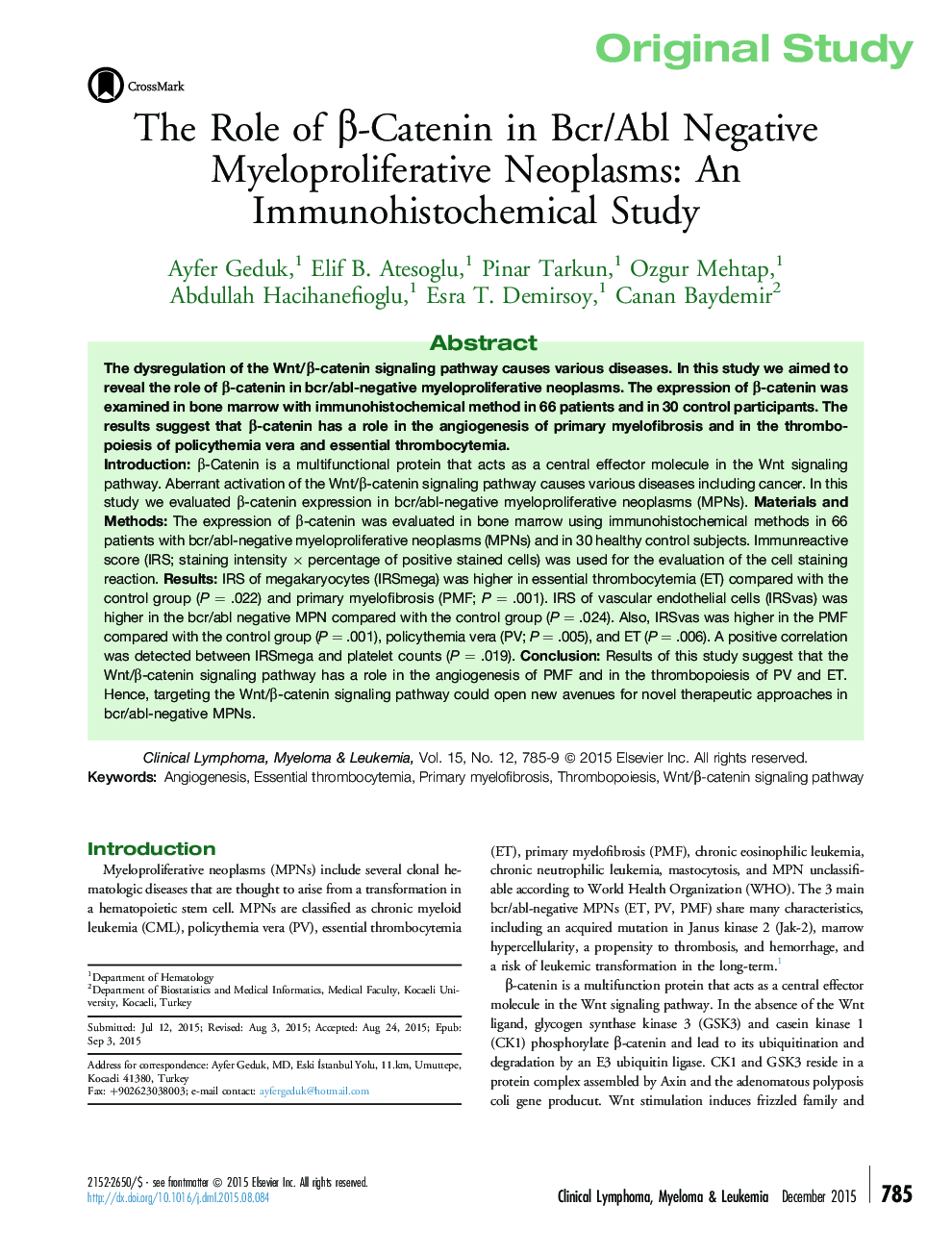| Article ID | Journal | Published Year | Pages | File Type |
|---|---|---|---|---|
| 2754313 | Clinical Lymphoma Myeloma and Leukemia | 2015 | 5 Pages |
Introductionβ-Catenin is a multifunctional protein that acts as a central effector molecule in the Wnt signaling pathway. Aberrant activation of the Wnt/β-catenin signaling pathway causes various diseases including cancer. In this study we evaluated β-catenin expression in bcr/abl-negative myeloproliferative neoplasms (MPNs).Materials and MethodsThe expression of β-catenin was evaluated in bone marrow using immunohistochemical methods in 66 patients with bcr/abl-negative myeloproliferative neoplasms (MPNs) and in 30 healthy control subjects. Immunreactive score (IRS; staining intensity × percentage of positive stained cells) was used for the evaluation of the cell staining reaction.ResultsIRS of megakaryocytes (IRSmega) was higher in essential thrombocytemia (ET) compared with the control group (P = .022) and primary myelofibrosis (PMF; P = .001). IRS of vascular endothelial cells (IRSvas) was higher in the bcr/abl negative MPN compared with the control group (P = .024). Also, IRSvas was higher in the PMF compared with the control group (P = .001), policythemia vera (PV; P = .005), and ET (P = .006). A positive correlation was detected between IRSmega and platelet counts (P = .019).ConclusionResults of this study suggest that the Wnt/β-catenin signaling pathway has a role in the angiogenesis of PMF and in the thrombopoiesis of PV and ET. Hence, targeting the Wnt/β-catenin signaling pathway could open new avenues for novel therapeutic approaches in bcr/abl-negative MPNs.
